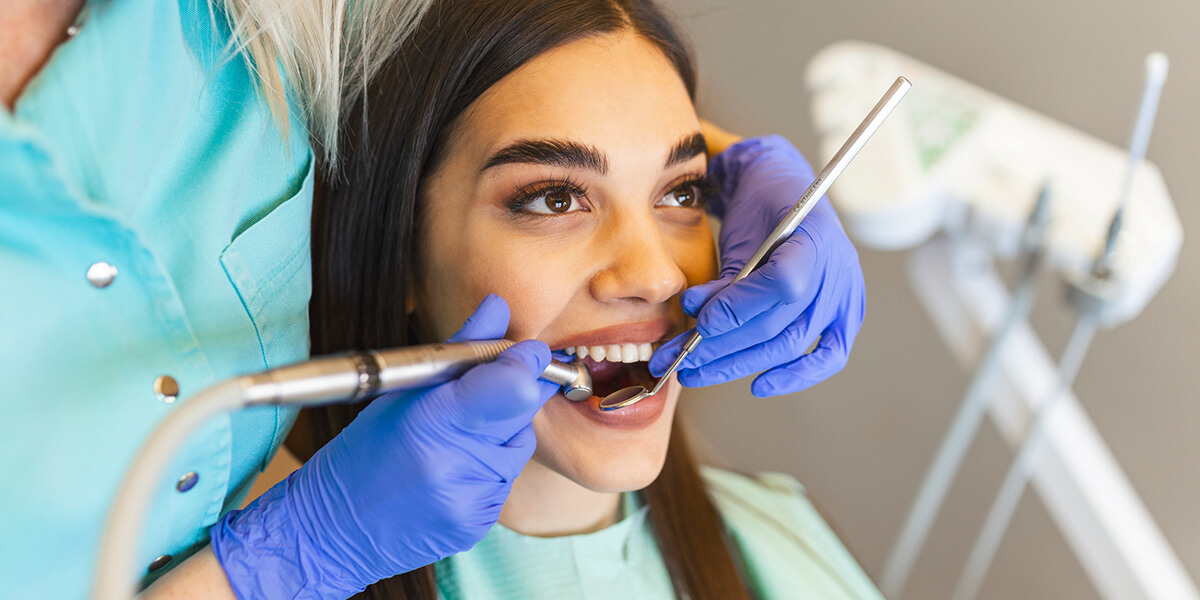Dental Exams in West Milford, NJ

An oral examination is a visual inspection of the mouth, head, and neck, performed to detect abnormalities. Radiographs allow for a more complete examination, helping the doctor to detect cavities, problems in existing dental restorations, gum recession, and bone defects or other abnormal conditions within the mouth, head and neck area.
The Importance of an Oral Examination
Visiting our office for a comprehensive examination is incredibly important for a variety of reasons.
- Open the door for communication between patient and dentist
- Address dental health issues early, including decay and gum disease
- Dental conditions are easier to treat when found early
- Find and address abnormalities in the mouth, head, and neck area
- Feel confident about your oral health with routine exams
- Develop a clear treatment plan – a roadmap to good oral health
What Happens During an Oral Examination
Although you may sometimes have a routine comprehensive exam on its own, exams are typically performed during a dental cleaning appointment. Combined, the entire appointment typically lasts about 45 to 60 minutes. You will first meet with our dental hygienist who will assess your oral health and then proceed with the removal of plaque, polishing, flossing, and rinsing of your teeth.
The oral examination follows this cleaning. Your dentist will be looking for signs of tooth decay, cracks, fractures, or other visible damage to your teeth. Gums are important, too, and will be examined for their color and contour – especially looking for any signs of periodontal disease. X-rays often, but not always, accompany the exam so that the dentist gets a good look at both the outside and the inside of the teeth. This helps in assessing potential oral health issues that are not visible. Don’t be surprised if your dentist checks your jaw and bite looking for abnormalities, as well.
Once the exam concludes, the dentist will diagnose any dental health issues or areas of concern. A treatment plan will be developed to address them. Overall, an oral examination is all about making sure your mouth is healthy – and, if not, taking the necessary steps to reach oral health.
Frequently Asked Questions About Dental Exams
Is local anesthesia used during cleanings and oral examinations?
No. There is generally no need for any local anesthesia during these treatments. If you experience any discomfort during your cleaning, be sure to let your hygienist know.
How often are oral examinations performed?
Except under extenuating circumstances or an emergency, oral examinations are often performed during routine cleaning appointments. Therefore, it is recommended that you have one every 6 months. This will give you the best chance at achieving good oral health. Though, at the bare minimum, these exams should take place annually.
Can I prepare for a comprehensive examination?
There is nothing you need to do to prepare for your dental exam. Just be sure to come prepared with any questions or concerns that you may have. This is an ideal time to speak to your dentist about your oral health.
How often are dental x-rays taken?
It depends on your dental history and current dental health. A healthy adult without any underlying concerns may be able to go a couple of years without needing any new x-rays. However, someone with implants, crowns, fillings, and bridges, for instance, should have x-rays done annually. Your dentist will be able to determine the frequency of your x-rays to ensure that you get the best dental care.
Can routine oral examinations prevent root canals?
Absolutely. Root canal treatments are often needed due to the spread of tooth decay. If caught early through an exam, a simple small filling may be all that is needed to halt the decay. Otherwise, it is left to spread until it reaches the pulp and really begins to cause you discomfort. This is when a root canal will likely be necessary.
Call 973-728-3779 to schedule your appointment.